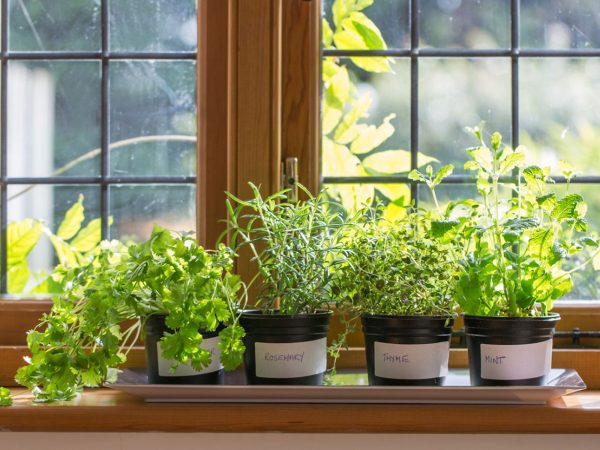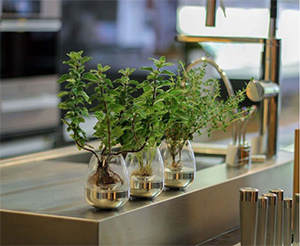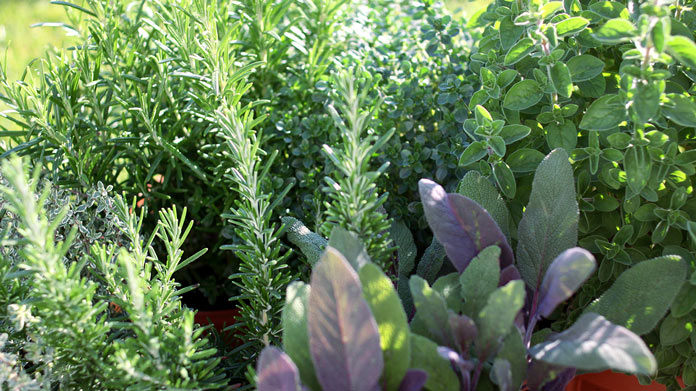When it comes to gardening or farming, our general perception leads us to a view of a farm with growing crops or a garden with flowers blooming all around. Fortunately, gardening and farming have moved beyond crops or making their yards look green and beautiful. Not just because these people are interested in gardening or farming but also for the medicinal value of these herbs. This particular group of plants has always been attracting a lot of attention from researchers, medical experts, environmentalists, herbalists or people even remotely related to all things organic.
Herbs have been helping mankind in many ways, since the very beginning. Accept it or not, herbs have always been a part of our lives in one way or the other; from our food to our medicines, they play a key role in making our lives better. If classified in categories: fresh and dried culinary herbs, herb plants, herbs used for essential oils and dyes, medicinal and herbs used for decorative purposes.
People, after realizing their value turned patches of land to herb farms and dedicated some parts of their gardens with herb plantation. Whatever the case is, herb plantation is gradually transforming into a market of its own with the techniques evolving with time. So what’s new in the field of herb farming? Let’s have a look at the changing practices and their impact on the product.
Related: Herb Farming at Home: a New Business?
Planting Herbs at Home
 As gardening extends from just making yards look beautiful to a place where health grows and a place that maximizes environmental sustainability, a number of home growers are now planting herbs too. Considering the fact that people prefer organic to synthetic or chemically treated food, they like growing their own vegetables, fruits and now, herbs. At-home herb gardening has been observed to increase 12%, since 2008. Most of these home herb growers include women, over 50 years or young women in their 20s. Thus, the bigger picture indicates that gardeners are now more aware and concerned about their gardening practices influencing the environment as a whole. With a growing interest in herb plantation, people are discovering new ways to integrate this new and beneficial kind of gardening into their homes.
As gardening extends from just making yards look beautiful to a place where health grows and a place that maximizes environmental sustainability, a number of home growers are now planting herbs too. Considering the fact that people prefer organic to synthetic or chemically treated food, they like growing their own vegetables, fruits and now, herbs. At-home herb gardening has been observed to increase 12%, since 2008. Most of these home herb growers include women, over 50 years or young women in their 20s. Thus, the bigger picture indicates that gardeners are now more aware and concerned about their gardening practices influencing the environment as a whole. With a growing interest in herb plantation, people are discovering new ways to integrate this new and beneficial kind of gardening into their homes.
Hydroponic Herb Growth
 A new trend of interior herb growth without the use of soil, known as hydroponics is becoming a common practice in this herb planting movement. Ideally, hydroponics involves plantation in water or roots moistened with a water solution, as a substitute for soil using wet rock wool. This new technique of growing plants and herbs through hydroponics allows people to produce fresh food all year round in a small space. The reason why this method is becoming more common is that it is quick and more beneficial for the growth of plants than any other method. The reason being, the plant is given the right nutrients, at the right time and in the right amount; thus making them grow faster and the yield is particularly healthier with all the nutrients intact.
A new trend of interior herb growth without the use of soil, known as hydroponics is becoming a common practice in this herb planting movement. Ideally, hydroponics involves plantation in water or roots moistened with a water solution, as a substitute for soil using wet rock wool. This new technique of growing plants and herbs through hydroponics allows people to produce fresh food all year round in a small space. The reason why this method is becoming more common is that it is quick and more beneficial for the growth of plants than any other method. The reason being, the plant is given the right nutrients, at the right time and in the right amount; thus making them grow faster and the yield is particularly healthier with all the nutrients intact.
Related: 5 Myths About Organic Gardening
Farmers, after growing hydroponic vegetables and fruits, have shifted towards planting herb, utilizing this soil-less method. Culinary herbs like basil, oregano, cilantro, etc. are now hydroponically grown as they grow faster this way and the produce has a stronger flavor, smell and is comparatively healthier. This process for growing herbs is becoming more mainstream, as the awareness regarding hydroponic increases, more local herb growers are transitioning to a modern and more fruitful system of herb plantation. Since this new method is manageable, more profitable due to quick growth and healthier; therefore, it is now turning into a business venture rather than just a hobby. Not just in homes but a number of traditional herb farms have now adopted to shift their herb plantation to hydroponic.
Not just culinary herbs, but hydroponically grown medicinal and cosmetic herbs are also taking over the market. These hydroponic herbs are pure, clean and are particularly rich in their therapeutic oils because of their growth in a controlled environment. Companies involved in herbal medicine and cosmetic production are changing their methods of herb plantation to hydroponic as it fulfills their need for a huge amount of produce and is more beneficial. This particular method of plant and herb growth is also advantageous in the long run for the environment that is already being polluted by plantation that involves chemical fertilizers and pesticides to fertilize the soil; thus, producing food that is anything but healthy.
Planting For Profit
Growing herbs as a potential crop, due to the various herb enterprises forming a new market is now becoming the new norm of the food economy. Local farmers’ markets encourage at-home herb growers to sell these herbs to them. Due to which a 50 % increase in the demand for herbs has been witnessed in the past 5 years.
A growing interest in herbs has led to hobby herb growers to take their herbs to the market and gain profit over them and also the fact that it bears the very few occupational hazards such as heat illnesses, skin abrasions inclining more and more individuals to this industry. Recently, a number of homeowners have started growing herbs to sell at their local stores. Local growers have turned their gardening skills into a source of income. Not just in homes but restaurants are following this trend of in-grown ingredients, and planting culinary herbs to be used as a fresh and healthy part of their cuisine.
Similarly, due to their undeniable medicinal and therapeutic properties, people are more inclined towards planting and selling herbs that are used as a natural remedy or are used in herbal medicines.
The constantly growing need for these plants has increased the number of backyard herb gardens and local herb growers.
Herb Farms Occupying Fields
 Herb farming, on the other hand, is a vast field that still requires more research and the invention of new techniques. From proper knowledge about seed genetics based on diverse environmental factors, selecting organic fertilizers and pesticides to understand all the technical and cultivation aspects of growing a farm, there is a vital need for farmers to be properly educated with all that is to herb farming.
Herb farming, on the other hand, is a vast field that still requires more research and the invention of new techniques. From proper knowledge about seed genetics based on diverse environmental factors, selecting organic fertilizers and pesticides to understand all the technical and cultivation aspects of growing a farm, there is a vital need for farmers to be properly educated with all that is to herb farming.
The rise in innovative techniques for inducing organic practices into herb farming like rain gardens, usage of organic pest management methods, plantation of trees, herb or organic fertilizers, mulching and recycling through natural means at your disposal are all becoming very common. The growth of herbs is not confined to standard area size, fresh herbs to be sold in the market, wholesalers, restaurants, local farmer markets, or local grocery stores can all be grown on small or large acres of land, depending on the demand farmers are required to meet.
Related: Storage-Friendly Survival Gardening
Agricultural Equipment For Herb Farming
Initially, small herb farms used their land to plant single herbs without the use of any agricultural equipment. The reason being, they did not consider herb plantation as crops, let alone, cash crops. However, with time herb farmers realized this is a vast field waiting to be explored for profit. Herbs once planted in fertile soil have the ability to grow over the vast areas even without the use of fertilizers. The use of equipment maximizes land fertility while giving.
Herb Farming, A New Business
Herbs planted on large areas of land will ultimately give farmers a new business opportunity. As farmers witness the growth of this industry they are investing more in herb plantation on their heirlooms. Lands which earlier were not utilized are now solely dedicated to growing herbs. To keep up with the demand and supply of herbs for a number of industries they are utilizing the latest technologies and are using the internet as a tool to educate them about herb farming. Many entrepreneurs are now getting into this new area of business.
As people are now more concerned about natural ways of food production and consumption of organic food, we see a growing number of herb farms. As health and medical researches explore more they realize the importance and value of these herbs in treating a number of health conditions. Also, a number of diseases linked to the consumption of chemically treated food have given herb farming with numerous health benefits. Given their natural beneficial characteristics, the food economy now sees the profitable possibilities of herb farming and gardening. The business world now expands to more herbal enterprises than artificial.











